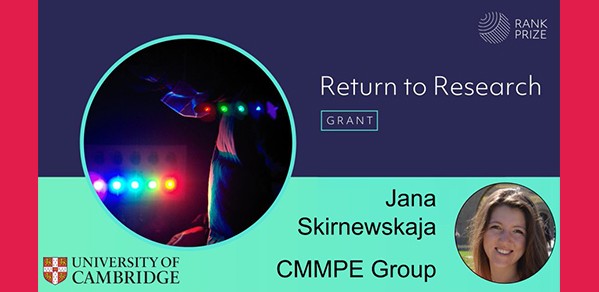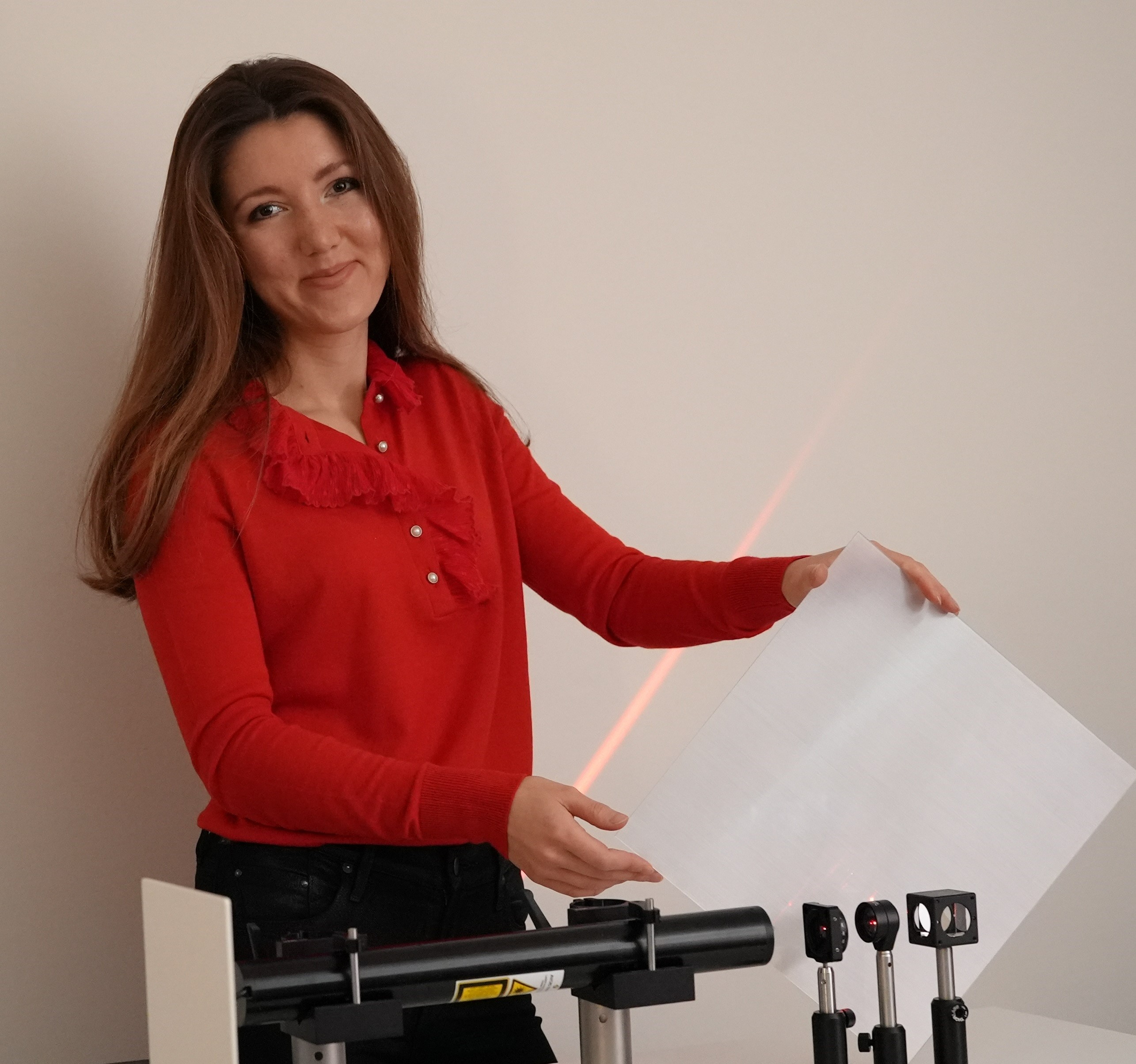
PhD student Jana Skirnewskaja has been awarded a ‘Return to Research’ grant in support of her optical experiments, after her research was hit by delays due to the COVID-19 pandemic.
As a result of the Rank Prize funding, I was able to purchase new optical lenses and carry out tests in the lab. These lenses improve the accuracy of the results and make the 3D holographic head-up display more user-friendly.
Jana Skirnewskaja
The Rank Prize Optoelectronics Committee invited PhD students in the field to apply for a one-off grant of up to £1,500 to help support research activities that had been negatively impacted by the pandemic.
Thanks to the funding, Jana is now in a position to begin new research, after she was able to purchase optical lenses, specifically microlenses and lenticular arrays, to support the creation of augmented reality (AR) holograms for head-up displays in cars. These lenses have proven to increase the field of view of the driver in simulation settings.
“Experiments with such lenses could give new insights into the possibilities of increasing the eye box and the field of view of the driver,” said Jana. “I am collecting LiDAR (light detection and ranging) data from public roads in London and I am processing the data with MATLAB algorithms, before creating AR holograms for head-up displays. However, these algorithms need to be tested within the optical setup in order to be adjusted to the AR head-up display setting, something that I could not do during the lockdowns, because I was unable to access the lab and so my research was delayed.
“As a result of the Rank Prize funding, I was able to purchase new optical lenses and have since been able to carry out tests in the lab. These lenses improve the accuracy of the results and make the 3D holographic head-up display more user-friendly. After testing the optical equipment in the lab, it is now possible for me to publish these newly gained insights in research papers in peer-reviewed journals and share the knowledge with others.”
Jana conducts her PhD research at the EPSRC Centre for Doctoral Training (CDT) in Connected Electronic and Photonic Systems, a joint centre with the University of Cambridge and UCL. She is also a fellow of the Foundation of German Business (SDW).
- Applications for the Return to Research grant, awarded by the Rank Prize, are being reviewed on a rolling basis. Applications can be made online.

